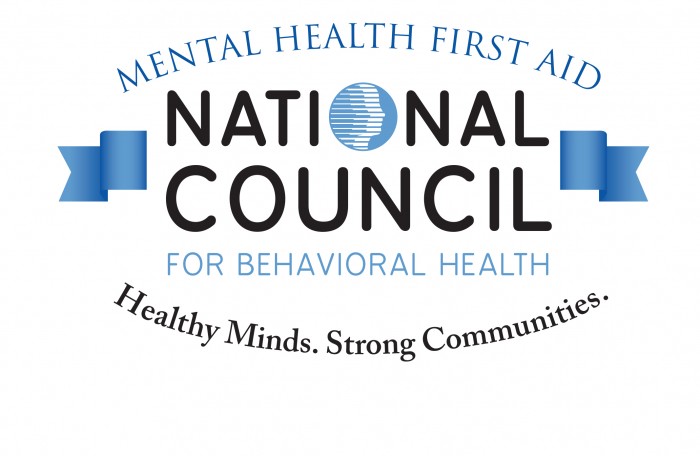Wolf Administration Outlines Impacts of Ending Disaster Declaration
HHS Announces Relief Fund Distributions for Safety Net Hospitals, Medicaid & CHIP Providers
Yesterday, the U.S. Department of Health and Human Services (HHS), through the Health Resources and Services Administration (HRSA), announced additional distributions from the Provider Relief Fund to eligible Medicaid and Children’s Health Insurance Program (CHIP) providers that participate in state Medicaid and CHIP programs. HHS expects to distribute approximately $15 billion to eligible providers that participate in state Medicaid and CHIP programs and have not received a payment from the Provider Relief Fund General Distribution. HHS also announced the distribution of $10 billion in Provider Relief Funds to safety net hospitals that serve our most vulnerable citizens. The safety net distribution will occur this week. For further information on provider eligibility and FAQs, please see the HHS website.
Message from National Council: Surgical Face Masks Still Available
Good Morning,
Here at the National Council we work to support the behavioral health community through advocacy, information exchange, resource development and even the acquisition of material goods for those in need.
If you need medical face masks, we still have a limited supply available for purchase. These masks come in batches of 200 and are being sold “at cost,” with shipping charges included. Secure your order today!
We expect these to ship within three working days of receiving your order. All masks will be shipped via UPS ground.
If you have any questions, please email Orders@TheNationalCouncil.org and we will be happy to help.
Thank you,
The National Council for Behavioral Health
CARES Act for Providers of ODP Waiver Services
The Governor signed Act 24 of 2020, which allocates funding from the Federal Coronavirus Aid, Relief, and Economic Security Act – also known as the CARES Act. Act 24 of 2020 includes $260M of COVID-19 relief funds for providers of home and community-based services for people with intellectual disabilities and autism. ODP Announcement 20-070 provides details regarding the funding distribution.
This funding will be used to provide the following payments to providers of services through the ID/A Waivers and Adult Autism Waiver:
- One-time payments for providers of Residential, Respite, and Shift Nursing services ($90M)
- 120 days (March – June 2020) of retainer payments, up to 75% of average monthly billing for 7/1/19-2/29/2020, for providers of Community Participation Support services ($80M)
- 120 days (March – June 2020) of retainer payments, up to 75% of average monthly billing for 7/1/19-2/29/2020, for providers of In-Home and Community, Supported and Small Group Employment, Companion, and Transportation Trip services ($90M)
ODP is preparing for the distribution of the funds as one-time gross adjustments for providers of Residential, Respite, and Shift Nursing services. The remittance for these gross adjustments is expected to be posted June 15 for providers of services through the ID/A Waivers with payment available June 24, 2020.
The remittance for the Adult Autism Waiver is expected to be posted June 22 with payment available July 1, 2020.
ODP anticipates distributing the funding for retainer payments through gross adjustments. The remittance for the gross adjustment is anticipated to be posted on June 15 with payment available June 24, 2020 for providers of ID/A Waivers services and remittance June 22 for providers of Adult Autism Waiver services with payment available July 1, 2020.
For providers with multiple service locations, the gross adjustment will be applied to the service location with the highest utilization of the relevant service. Providers do not need to submit requests for the funding. All currently enrolled providers that provided the above listed services and have a provider agreement for Waiver services will receive the funding as described above.
It is important to note that Act 24 of 2020 requires these funds to be expended by November 30, 2020 or returned to the commonwealth. Additionally, these funds must be used for COVID-19 related expenses. Providers must keep documentation to prove that these funds were used for their response to the COVID-19 pandemic in case of an audit. Providers will be expected to provide a report on expenditures.
Frequently Asked Questions: https://home.treasury.gov/system/files/136/Coronavirus-Relief-Fund-Frequently-Asked-Questions.pdf
Governor Renews Disaster Declaration; Telehealth Extended
On June 3, 2020, Governor Tom Wolf renewed the 90-day disaster declaration that he originally signed on March 6, 2020. The Proclamation to extend the Disaster Declaration can be found here.
This renewal will, for the duration of the extended disaster declaration, extend the approval of telehealth as a means of service delivery. This is in conjunction with the original memorandum from DHS and OMHSAS, “Telehealth Guidelines Related to COVID-19 (Updated),” published on May 5, 2020. See the May 5 OMHSAS Telehealth Memorandum.
The continued use and approval of telehealth services has been reviewed and confirm with OMHSAS. If you have additional questions or feedback, please contact your RCPA Policy Division Director.
Applying DOH Testing for Long-Term Care Facilities’ Residents and Healthcare Personnel to Community and Life Sharing Homes
ODP Guidance Regarding Cap Exceptions for PFD/S and Community Living Waivers
ODP Announcement 20-069 provides additional guidance to Individual Support Planning Teams on the criteria for requesting a cap exception for the Person/Family Directed Support (P/FDS) and Community Living Waivers.
On May 11, 2020, the Office of Developmental Programs (ODP) published Fiscal Year (FY) 2020–2021 Renewal Guidance. As individuals begin to participate in activities in the community following the response to the COVID-19 pandemic, ODP recognizes that services may not be available at the same capacities and locations as they were prior to the COVID-19 pandemic.
ODP will be allowing additional P/FDS and Community Living Waiver cap exceptions consistent with the following guidance:
- CPS facility units may be re-allocated among CPS Facility, CPS Community, In-Home and Community Supports, Companion and/or Respite services as long as the total number of units does not exceed the number of units authorized before the COVID-19 pandemic. If this change alone causes an individual to exceed the waiver cap, an exception will be granted.
- The federal approval to grant COVID-related cap exceptions currently expires on March 10, 2021, so absent a further extension, it will be necessary to bring FY 21–22 ISPs back within the approved waiver caps.
- In order to request a FY 20–21 cap exception as a result of the COVID-19 pandemic, please complete this template and submit to your Regional Program Manager.
CMS Releases Recommendations for Reopening Health Care Facilities
Today, the Centers for Medicare and Medicaid Services (CMS) released a guide for health systems and patients as they consider their in-person care options while COVID-19 cases decline. During the COVID-19 public health emergency, many health care systems and patients postponed non-emergency, in-person care in order to keep patients and providers safe and to ensure capacity to care for the COVID-19 patients. As the cases of COVID-19 decline, CMS is providing these recommendations to ensure that non-emergency health care resumes safely and that patients receive in-person treatment that may have been postponed. On April 19, 2020, CMS issued Phase 1 recommendations to safely resume in-person care in areas with low incidence of COVID-19 cases. As with these Phase 1 recommendations, decisions to reopen should be consistent with federal, state, and local orders, Centers for Disease Control and Prevention (CDC) guidance, and in collaboration with state and local public health authorities.












